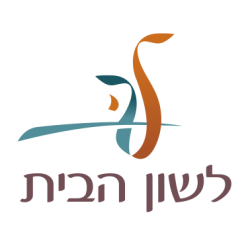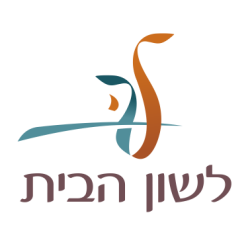?A: Where was your grandfather
.B: He was in... they origin is in... the father of my grandfather... they are Baghdadis
and there was some illness in Baghdad... this plague... I don't know what
.and every day thousands died
.A: They died (literally: they went), yes
,B: Many jews fled from Baghdad
,like my grandfather
,the father of my father
.he came to live in Ḥǝlli
?A: In Ḥǝlli or in Čǝfǝl
.B: Ḥǝlli
,my grandfather... the father... the father of my mother
,they lived in Čǝfǝl
,and they stayed in Čǝfǝl
,And he started to work
,to lease lands from the Turkish government
.he even leased the cemetery of Naǧaf
?ok
.And he had a house in Naǧaf
And my mother used to remember it... she said we had lived 6 months in Naǧaf
?there, ok
,And this cemetery of Naǧaf
,nobody got to be buried there (means: it was very difficult to get to be buried
there)
,it... was leased from the government in like... was leased in 100,000 Lira or 200,000
.and he had to give them
?ׁׁ(And every... but from where did he get (money
,Everyone that they (someone) wanted to be bury
.they took... from them money
,like... 20... 20... cents 30 cents
,I don't know
.it was in... in the time of the Turks, yes
,he used to lease it
and he leased lands from the government, like the... these taxes of tithe that were
.taken from the crops and from that, yes
?A: They used to lease it
,B: They leased it
,they were proposed... in a bid, yes
,like... 100,000... Lira, 20,000 Lira
.It... the bridges these are all... all bids
.C: The tollways
.B: Tollways , yes, they yes... took
.A: And they collected
.B: The collected the money and gave it to the government
.if they earned, they earned, if they lost, they lost
.(its like ( this
.the government didn't interfere
.yes
,He came to... later all this business moved to Šamīyi
.he came to Šamīyi
,When he came to Šamīyi
,it was) a town full of swampsׂ)
.(there was no land, yes (literally: you want a piece of land in it, there isn’t
...They started
,they started... there was one who had a piece... a piece of land near his house
,he told them
.friends, come build a shack in it
.(A: And live (there
B: And live,
what's the problem?
there was no sand to bury in it (literally: sand in which you want to bury there isn't),
you understand?
Not... a town of swamps... water all around it,
The land,
when you step on it your leg sinks and water comes out.
OK.
then... but they came,
They came and made like... this... a... a big house all made out of this... of cane and
bamboo weaves and from... this.
There wasn't any building (literally, rhetorically: what was a building?)
There wasn't any building.
and they lived,
they lived in it,
and they brought... these beds and everything and...
and they slept in it,
they split it... a part for the women a part for the men, yes, that.
They stayed for a while till... one day they woke up early... they woke up early and
they see that all their land is flooded and... ok?
(laughs)
And they... the... the... the... the water reached half...
A: To the knee.
B: To the knee... yes indeed.
(laughs)
after all it... was a swamp.
A: A leak.
B: Yes.
Afterwards he started to work... my grandfather
he piled and arranged pieces of land (literally - this is a piece of land and he piled it
and made it),
and slowly slowly Šamīyi became a town.
Its streets... the streets that were made in the end... water used to run in them,
A: Water.
B: Like... like...
A: Venice.
B: Like Venice...
yes, indeed, like Venice.
it was like...
and the water came out to the lake and the Euphrates spills in it,
disgusting.
And the mosquitos ate us,
(laughs)
The mosquitos used to kill us.
D: Where was it, in Diwanīyi?
B: No, in Šamīyi.
D: So you lived also in Šamīyi?
B: What?
It... our origin... they came from... he... their origin is in Čǝfǝl,
my mother was born in Čǝfǝl,
my maternal uncles are born in Čǝfǝl.
But later when...
A: What's the distance between Šamīyi and Čǝfǝl?
B: About sixty kilometers...
A: Sixty kilometers back in these days was... a long distance.
B: But how was it?
There were no streets.
We used to go... they used to take a mǝšḥūf (a kind of boat),
we traveled with the mǝšḥūf to Čǝfǝ...
A: What is a mǝšḥūf?
C: A boat.
B: This... like that in Venice.
You know this... this... this...?
D: Ah!
A: Like a gondola.
B: Gondola.
Yes, like a gondola.
Its like that... high from here and from here...
A: And the land like that... doesn't have this?
B: Yes, no (on the contrary) it has,
and we sat in it and... we traveled with it.
like once we came from Hǝndīyi to Šamīyi,
it was some holiday,
We had a big boat, like that that ships seeds,
able to carry 50 ton, with a sail, you know.
A: Yes, yes, yes...
B: We put mattress...
A: Mhāyla (another type of boat).
B: A big mhāyla.
And we came with it from Hǝndīyi to... to Šamīyi.
It is a long distance.
We took off from there at... around four in the afternoon,
it was summer,
we arrived at Čǝfǝl... we arrived at Čǝfǝl at around the middle of the night,
we rested in Čǝfǝl with friends... we stayed there with them,
and we took off at dawn... we took again the... in it (the boat),
so that... there are places in which the bridge stops (working),
They have like fixed hours,
so that we will reach it before they close it,
this bridge of Kūfa.
And this... we traveled through Kūfa till we arrived in Šamīyi the day after in the
afternoon.
There was nothing (literaly rhetorically: what was there?),
no cars...
A: That means... that means that from Čǝfǝl to... to Šamīyi how long does it take with
the mhāyla?
B: From Čǝfǝl to Šamīyi with the mhāyla ... about four-five hours.
A: Four-five hours.
B: Yes, yes, yes
A: It means four-five hours for sixty kilometers.
It means you travel twelve kilometers in one hour.
B: And this is with a sail... if the wind came and that...
C: It is not a plain road,
it (the road) needs to be shown to them,
so that he sees the land.
B: Yes, yes.









